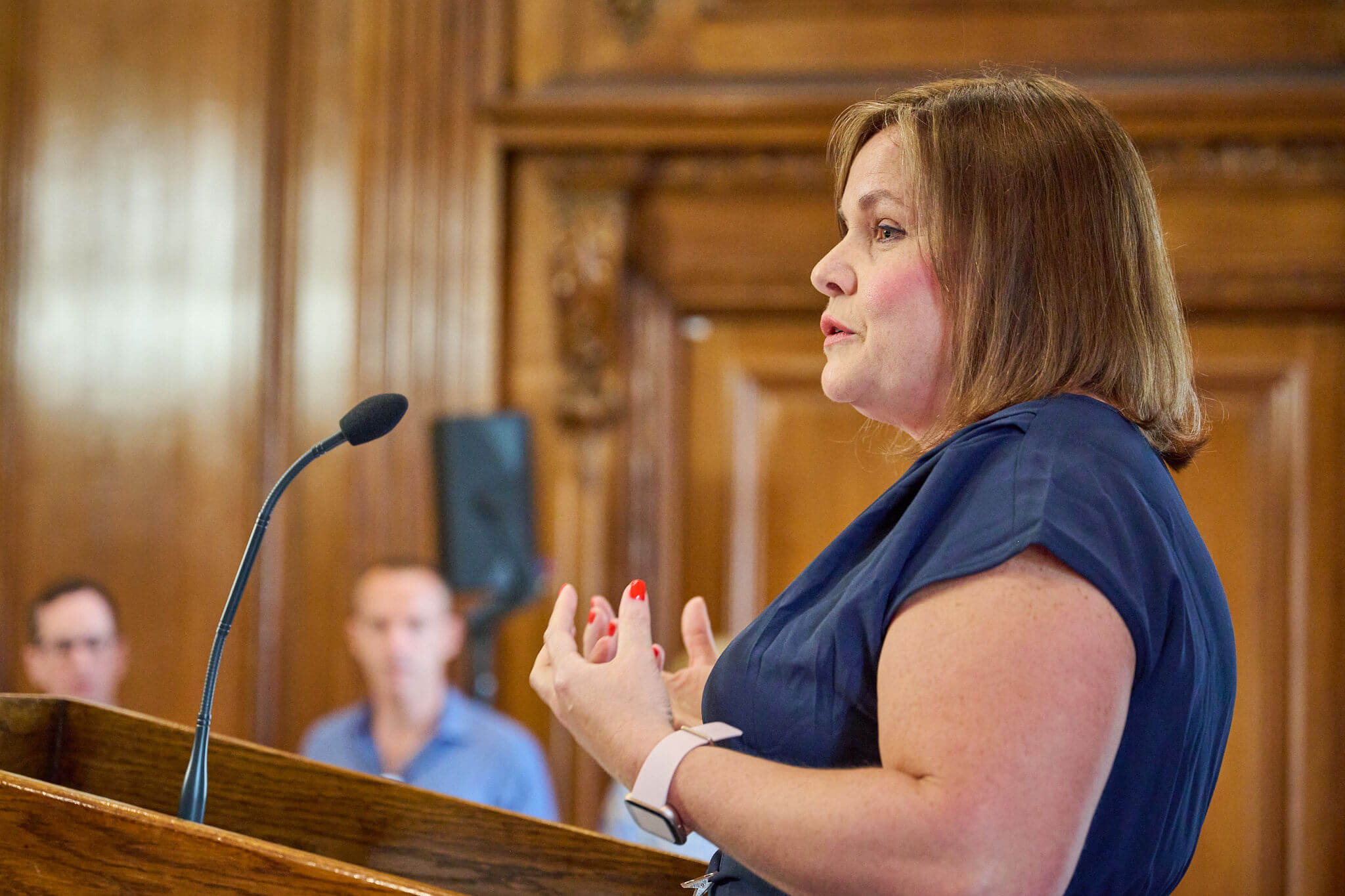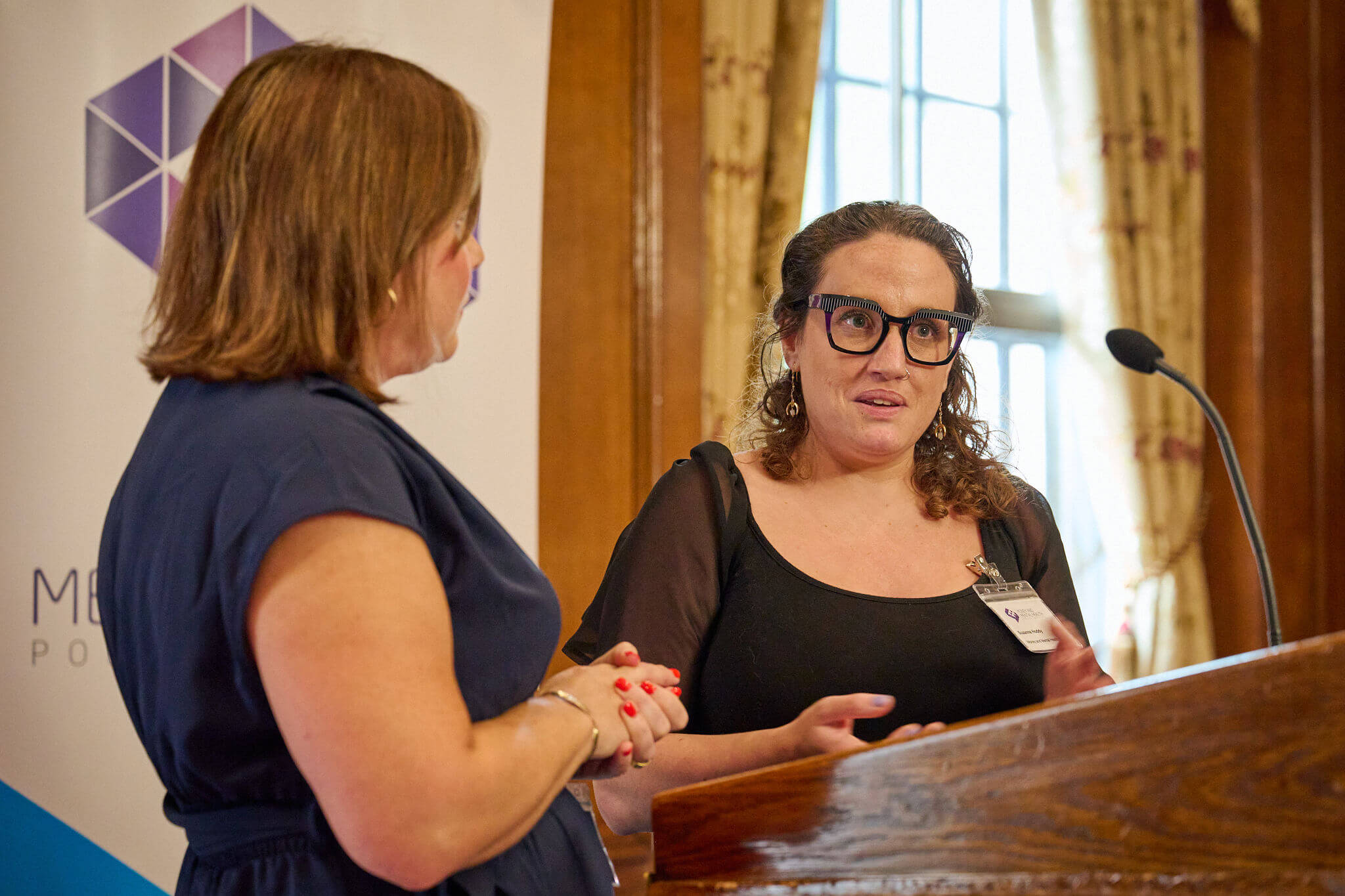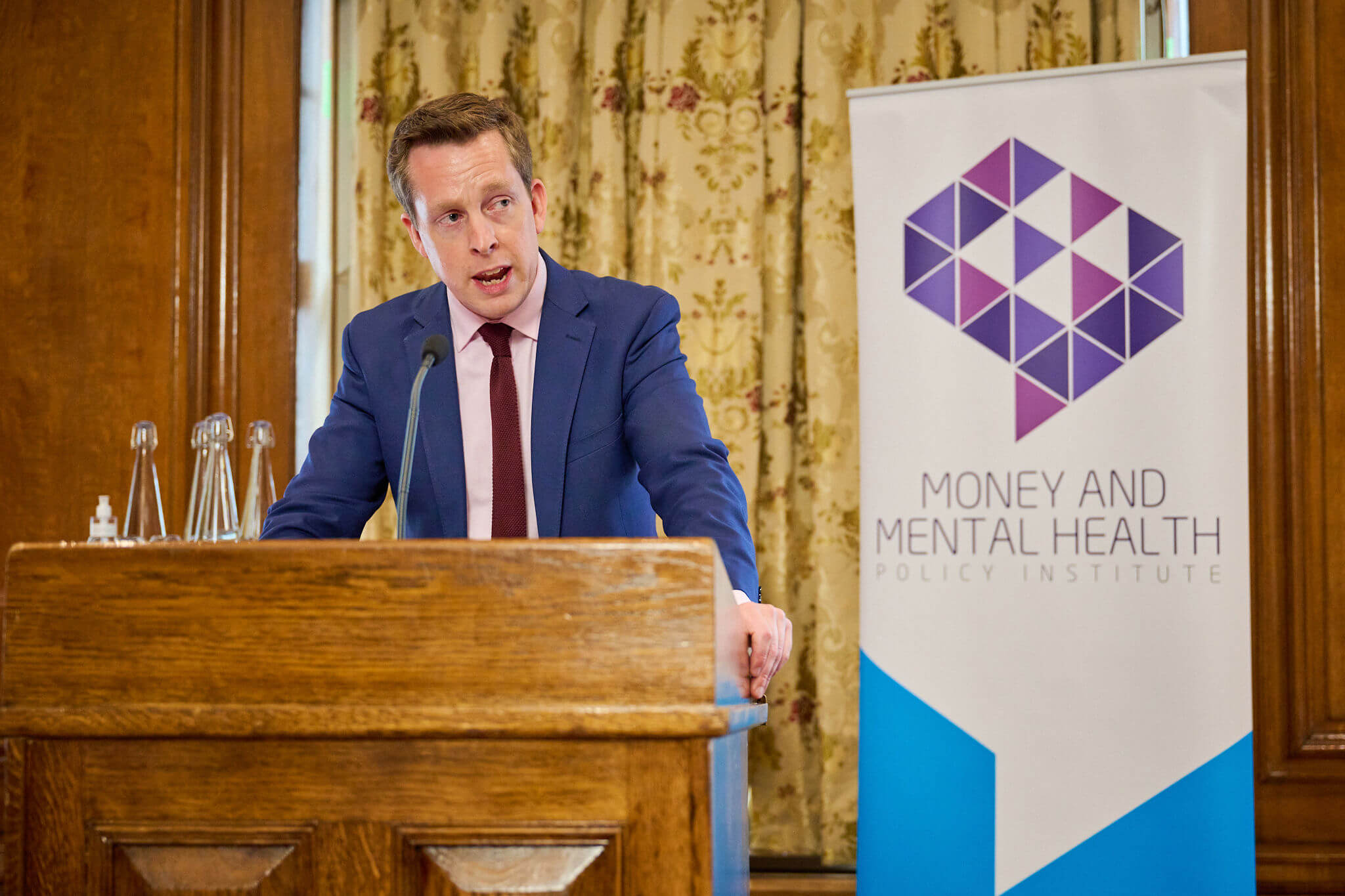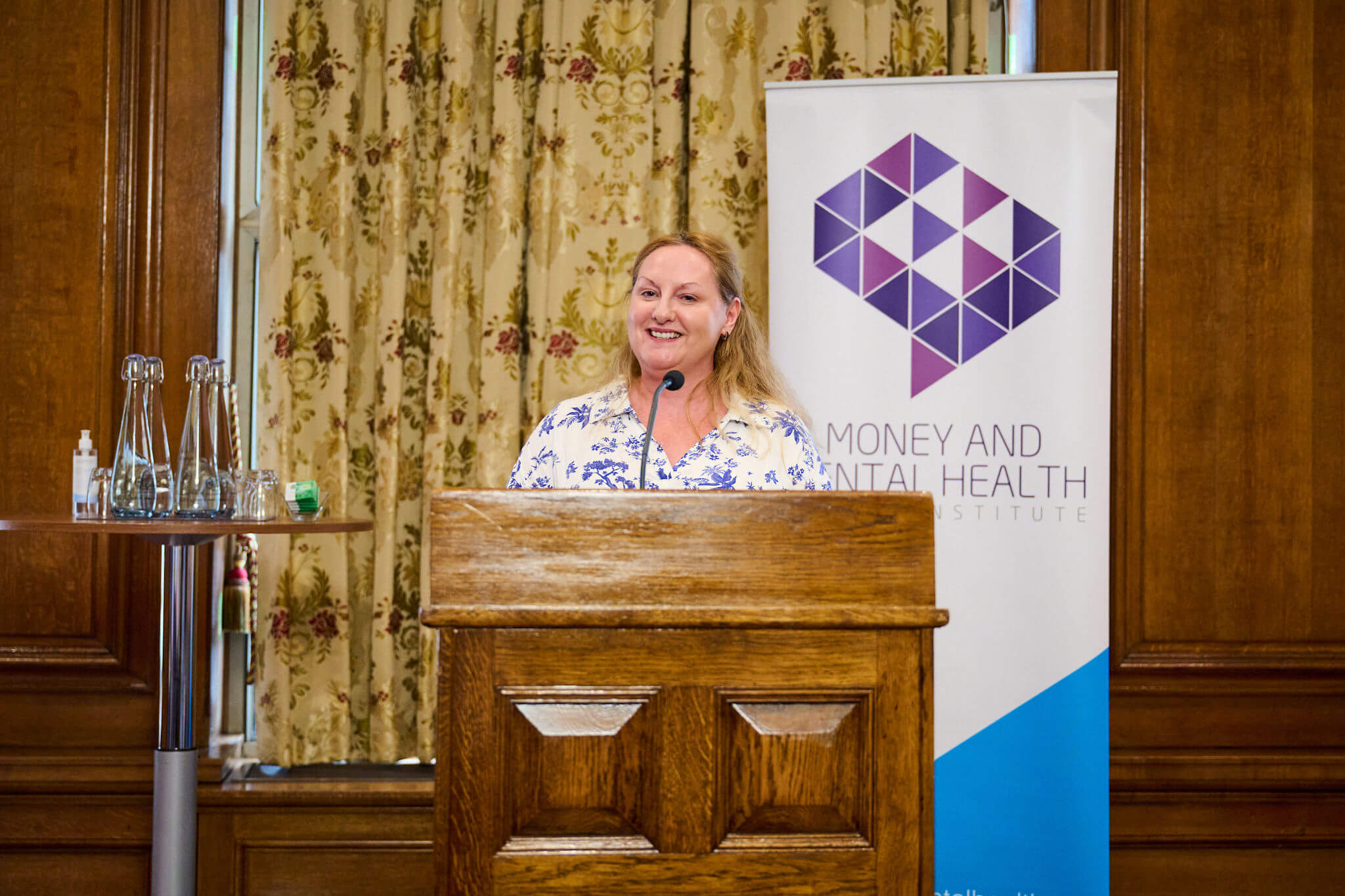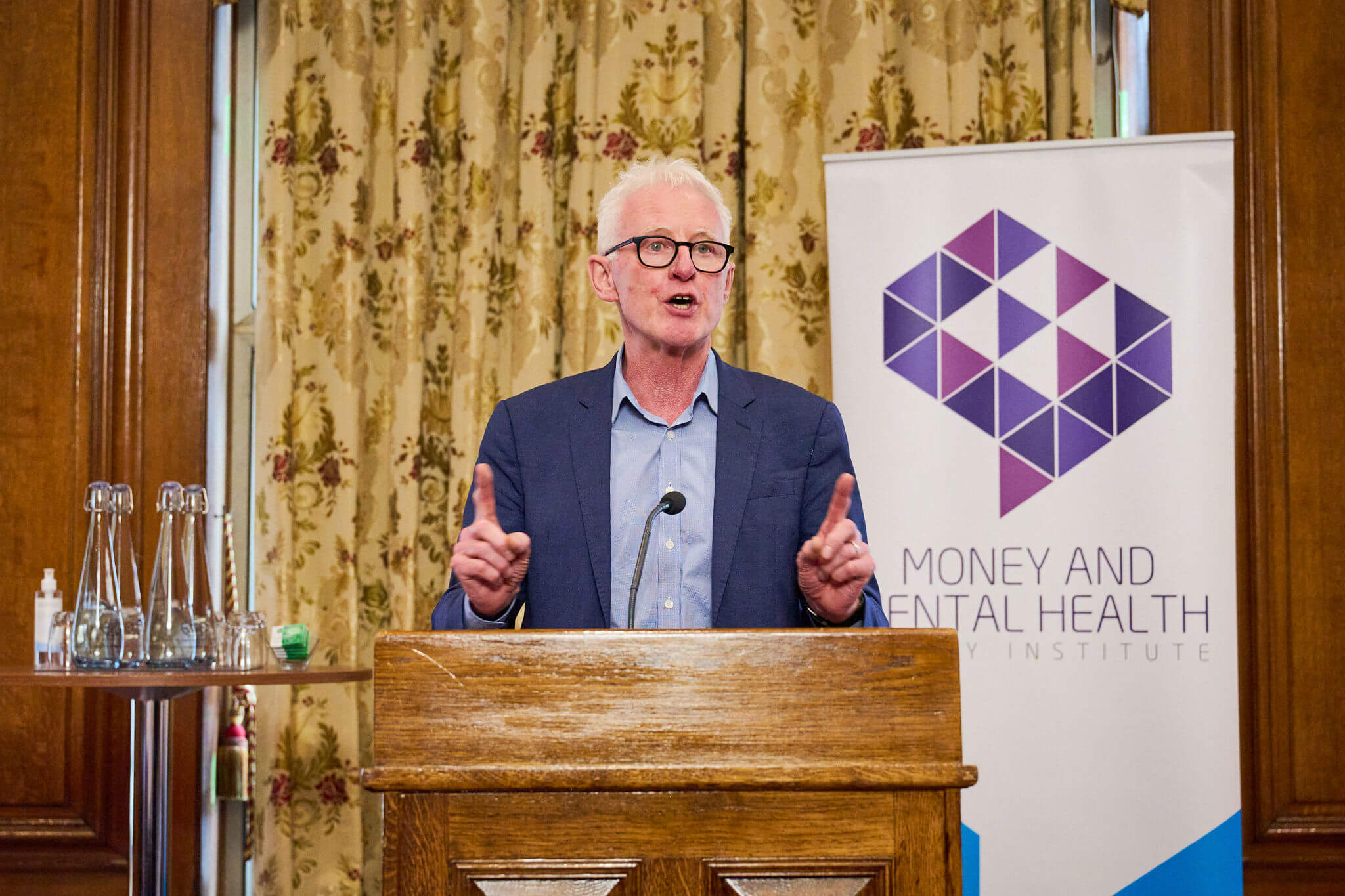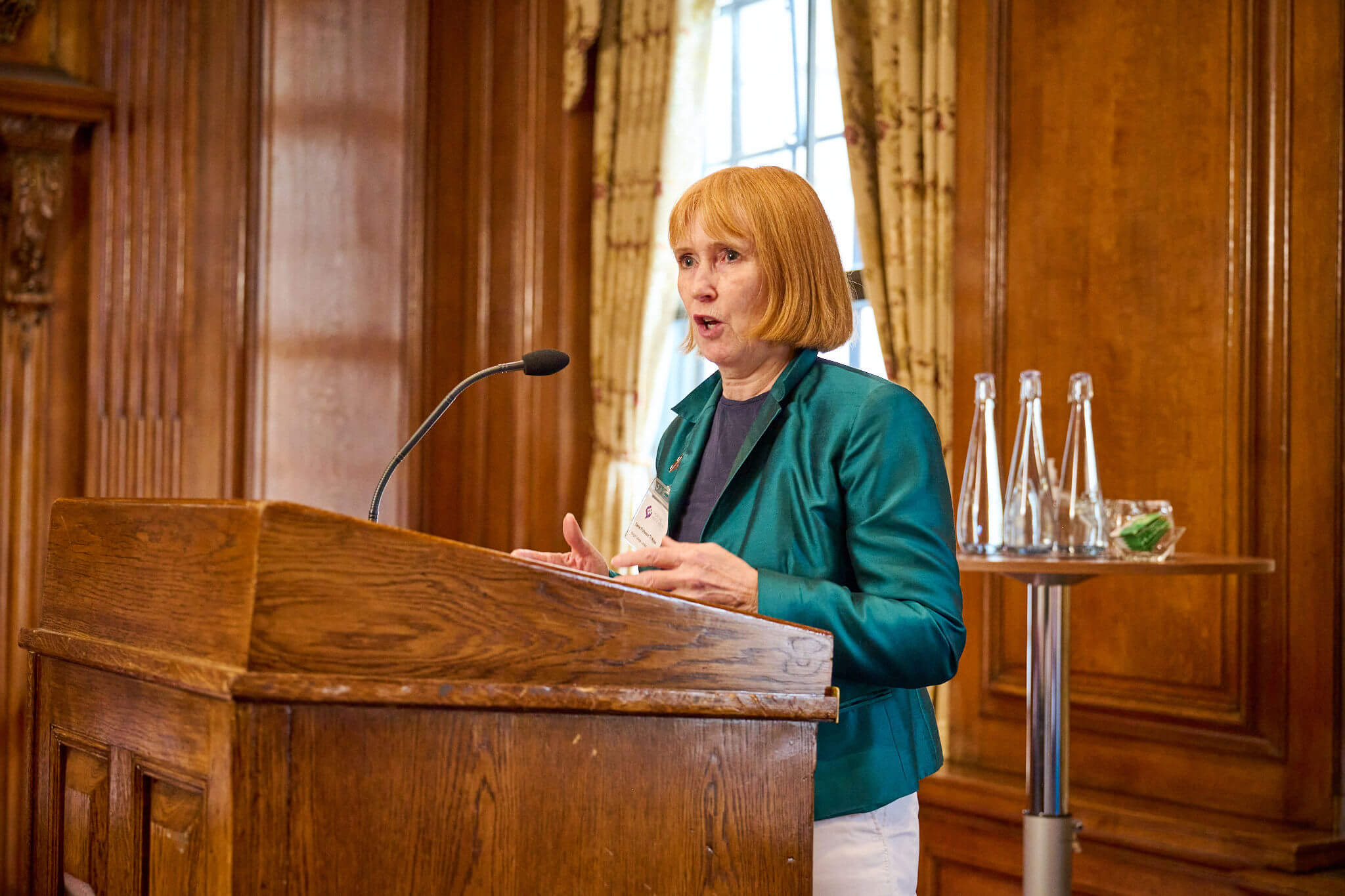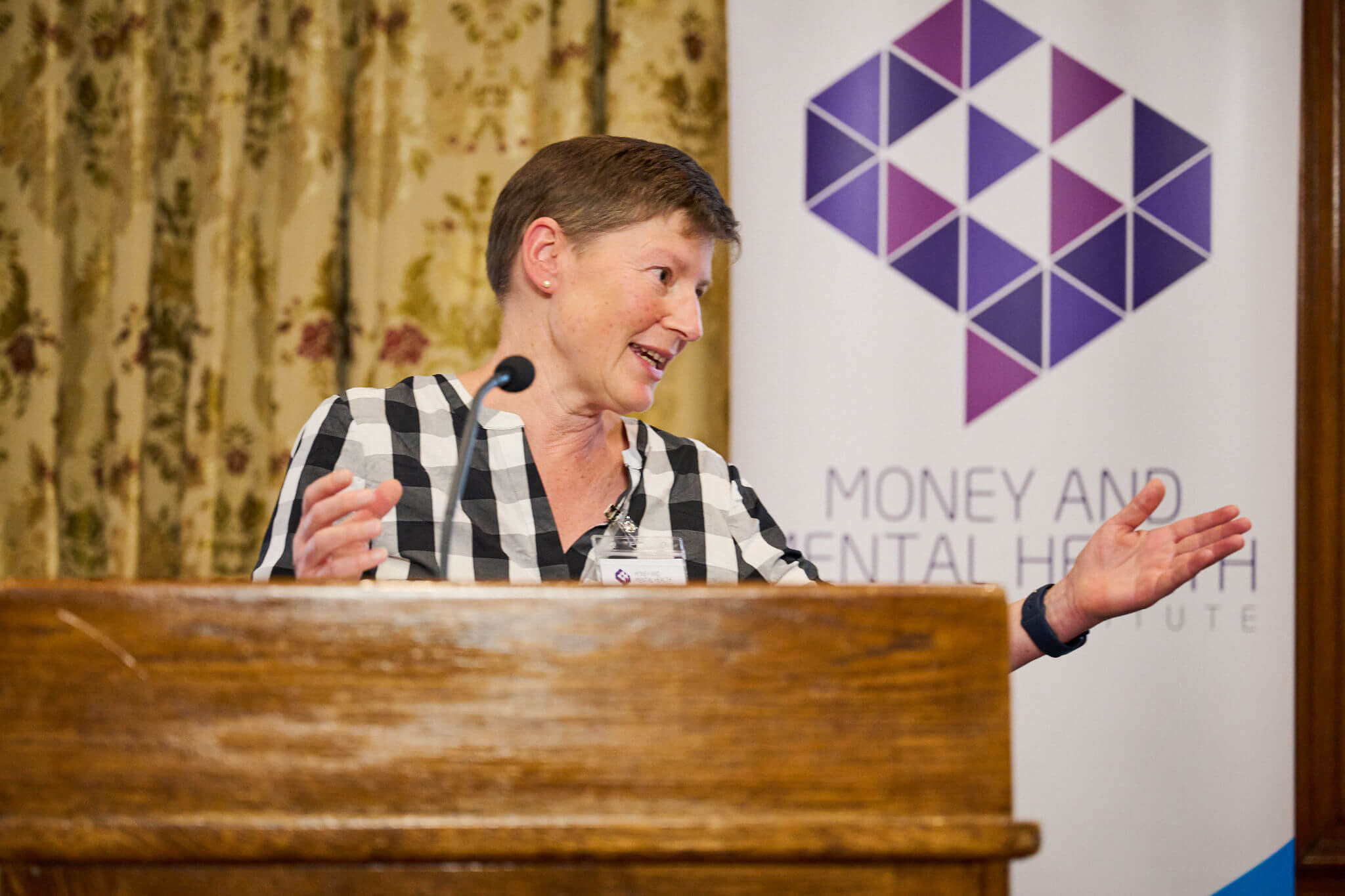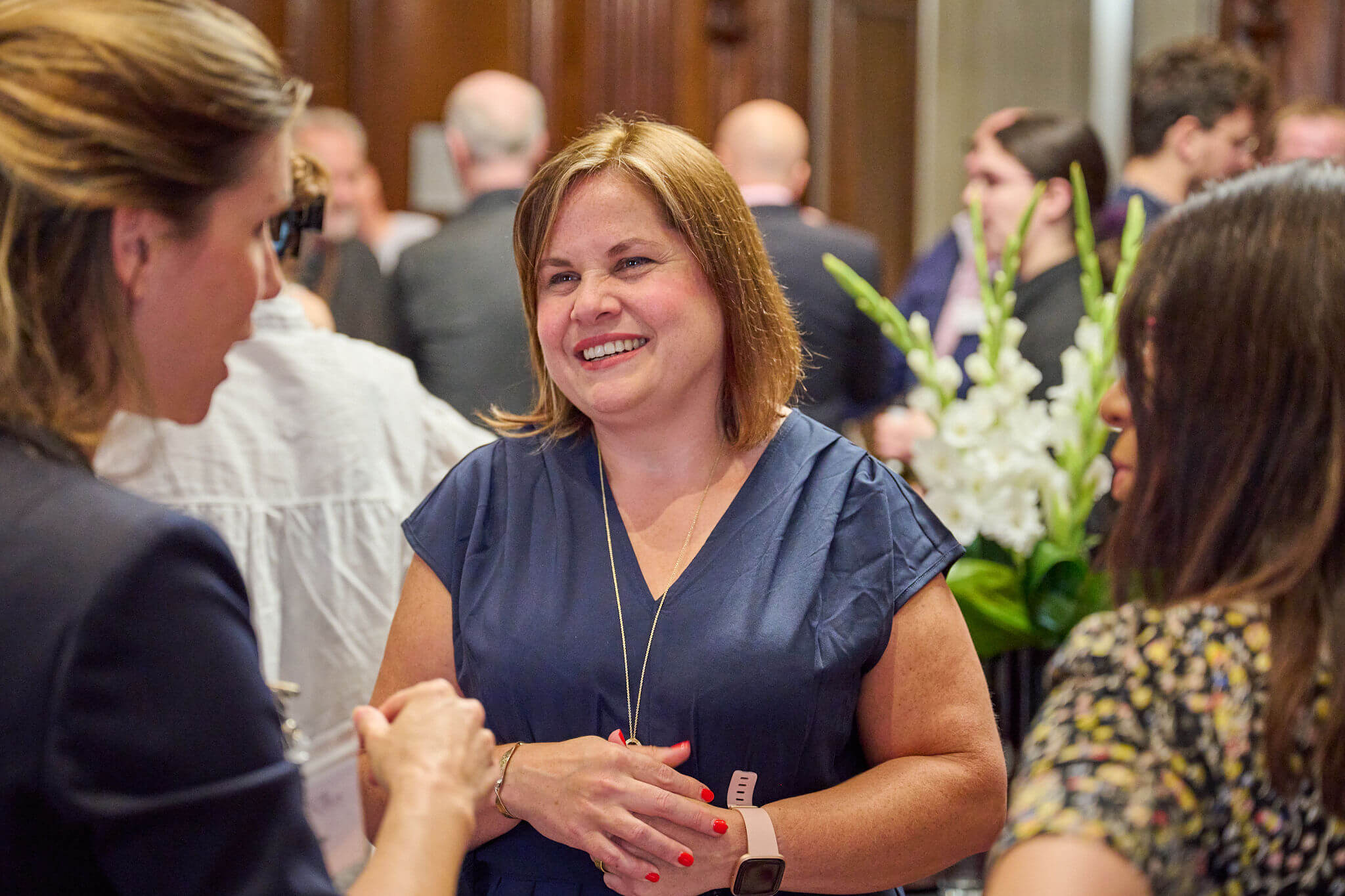
Liam Hill, External Affairs Officer, Money and Mental Health Policy Institute
Breaking the cycle launch event recap
25 July 2023
- We launched Breaking the cycle, our latest research, in Westminster last week.
- The paper shows that giving people money advice alongside talking therapies could double recovery rates for people with debt and depression – and help an extra 27,000 people recover from mental health problems each year.
- Our Chair and Founder Martin Lewis hosted the event and we were joined by excellent speakers from frontline politics as well as the mental health and money advice sectors.
On Wednesday last week, we launched our latest research. Our Breaking the cycle launch event took place in Westminster and was attended by 70 guests from health services and debt advice sectors, as well as academia and politics.
In this blog, we’ll share a recap of the launch event with some highlights of our speakers’ contributions.
Martin Lewis’ welcome
We were delighted to have our Chair and Founder Martin Lewis compèring our launch event. Martin opened by welcoming guests and speakers – and underlining the main findings of our research. Join-up services. Boost recovery rates. Save money. “This is really simple,” he told our audience, “and it should have happened a long time ago.”
“Money and mental health problems are linked together for so many people … It’s time money and mental health services were joined-up too.” Martin Lewis CBE, Founder and Chair of Money and Mental Health
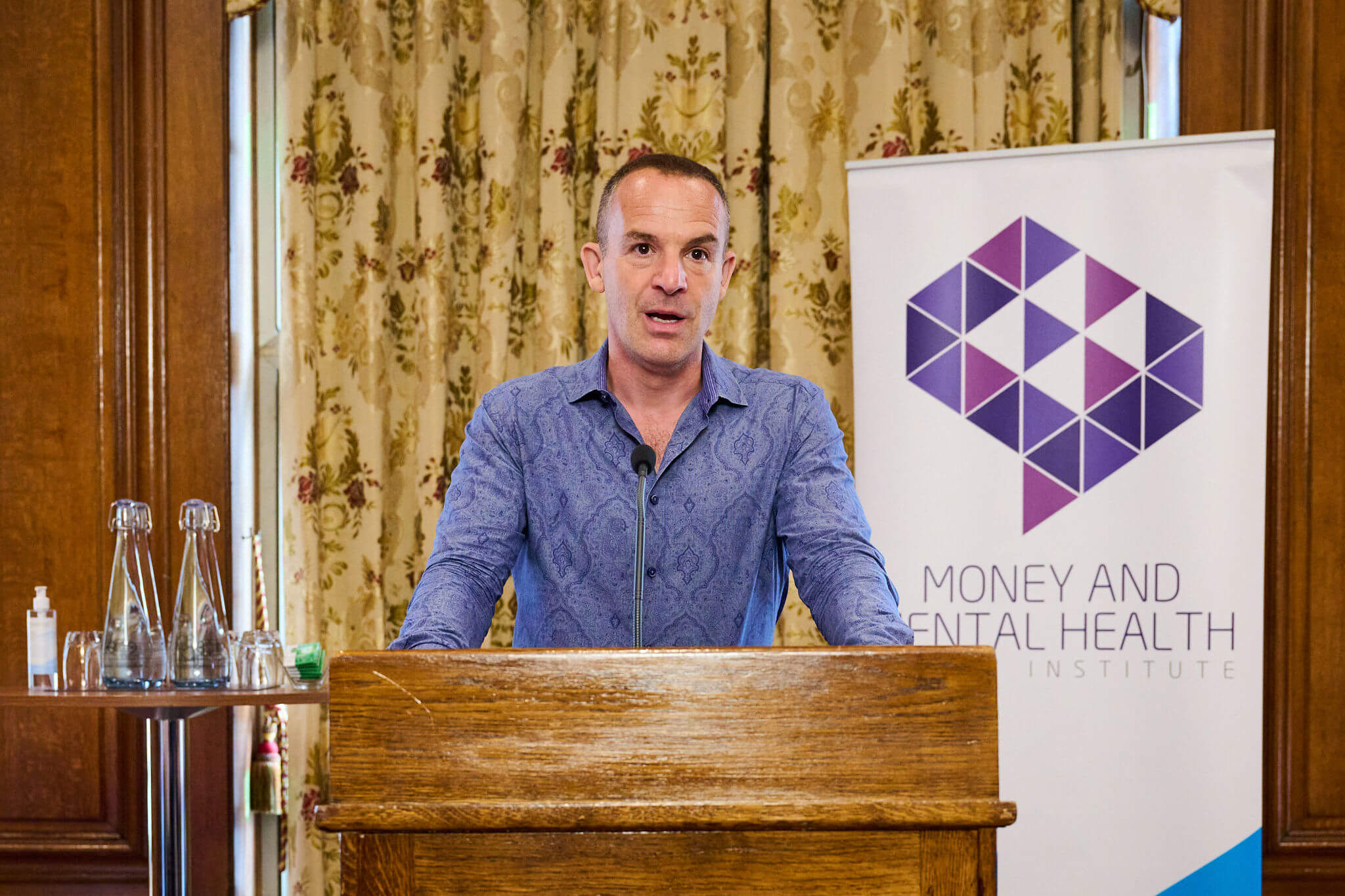
The research, the experience
Nikki Bond, our Interim Head of Research and Policy, started with the findings of Breaking the cycle which provides an update to our previous papers on the cost of living crisis, A tale of two crises and Bombarded.
“Astonishingly, almost half of people who are behind on bills also have a mental health problem.” Nikki Bond, Interim Head of Research and Policy
Nikki then invited our Research Community member and lived experience speaker Suzanne to join her up on stage. Suzanne has experience of talking therapies but also professional experience as an NHS nurse.
She told us about how the lack of joined-up support had meant she came home to a court summons for a missed council tax payment after spending time in hospital for her mental health. She explained that having to pay the fine to avoid going to court meant she had to work longer hours, miss some of her talking therapy sessions and put her recovery at risk. She said that joined-up services could have prevented her from jeaopardising her recovery.
A minister and a shadow minister walk into a launch
Following Nikki and Suzanne was Tom Pursglove, the Minister of State for Disabled People, Health and Work. Pursglove welcomed the paper, calling it a “really important and impactful report that prompts a lot of questions to us in government.” He added, “I am very keen to explore with you in the weeks and months ahead that offer that we are seeking to bring forward.” He also described some of the work the government has already been doing to support people with mental health problems back into work.
Taking the stage next was Jonathan Ashworth, Secretary of State for Work and Pensions. Ashworth also praised the research. He spoke about his desire to change the culture of the Department for Work and Pensions and his ambition that people would one day celebrate the launch of our post-war social security system, just like the NHS was celebrated for its 75th birthday this year.
“Provision that integrates whole-person approaches to mental health services and care is vital… We absolutely recognise the importance of this research.” Tom Pursglove MP, Minister of State for Disabled People, Health and Work
“This is a really important piece of research… It should be about treating people with dignity and giving them their self-belief back.” Jonathan Ashworth MP, Shadow Secretary of State for Work and Pensions
The health perspective
Dr Lisa Cameron, SNP MP and member of our advisory board, was our next speaker. Before entering Parliament, Dr Cameron worked as a clinical psychologist. She offered her support for the research based on her insight from both roles.
“We do need to be asking these questions… We need to ask in health settings because there’s a massive stigma about mental health still, but also finances.” Dr Lisa Cameron MP
We welcomed Sir Norman Lamb, formerly an MP and Minister for Care and Support, and now Chair of the South London and Maudsley NHS Foundation Trust, next. Sir Norman spoke about how dysfunctional some aspects of the mental health system in the UK are – and how the changes called for in Breaking the cycle could make a difference.
““This report completely encapsulates the case for reform in our mental health system… We should be implementing these recommendations here and now. As Martin Lewis says, it’s a no brainer.” Sir Norman Lamb
Professor Dame Til Wykes is a member of our advisory board and an eminent voice in the UK’s academic Psychology community. She spoke next about the need for evidence-based solutions and the King’s College London pilot of joined-up services currently underway.
“We really need to set up a service that provides ongoing help for people in mental health services to help get them out of debt – and to make them more confident with managing their mental health too.” Professor Dame Til Wykes
The debt advice perspective and finishing up
Joanna Elson CBE, Chief Executive of Money Advice Trust, offered her support for joining up talking therapies with money advice. Tying in her upcoming change in role – she’s set to become CEO of Independent Age this year – Joanna told the story of two older people who have been struggling during the cost of living crisis, and the instrumental difference this integrated support could have.
Finally, Martin Lewis took to the stage one final time to thank our speakers and guests for their time. He closed by urging attendees and decision makers to take the next step and turn talk into action.
We want to thank Martin, all of our speakers and our guests for coming to this launch and making it a success.

